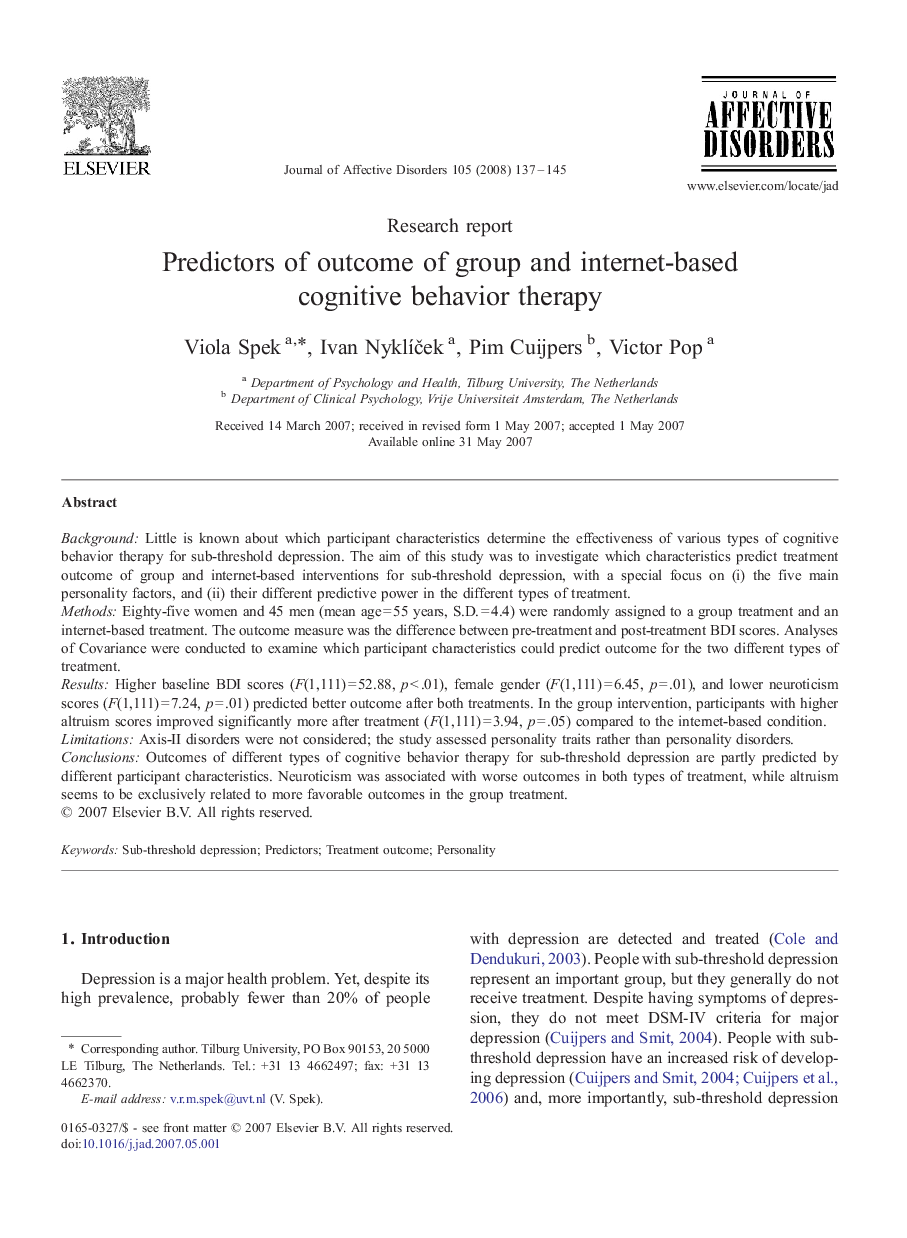| کد مقاله | کد نشریه | سال انتشار | مقاله انگلیسی | نسخه تمام متن |
|---|---|---|---|---|
| 4187723 | 1608216 | 2008 | 9 صفحه PDF | دانلود رایگان |

BackgroundLittle is known about which participant characteristics determine the effectiveness of various types of cognitive behavior therapy for sub-threshold depression. The aim of this study was to investigate which characteristics predict treatment outcome of group and internet-based interventions for sub-threshold depression, with a special focus on (i) the five main personality factors, and (ii) their different predictive power in the different types of treatment.MethodsEighty-five women and 45 men (mean age = 55 years, S.D. = 4.4) were randomly assigned to a group treatment and an internet-based treatment. The outcome measure was the difference between pre-treatment and post-treatment BDI scores. Analyses of Covariance were conducted to examine which participant characteristics could predict outcome for the two different types of treatment.ResultsHigher baseline BDI scores (F(1,111) = 52.88, p < .01), female gender (F(1,111) = 6.45, p = .01), and lower neuroticism scores (F(1,111) = 7.24, p = .01) predicted better outcome after both treatments. In the group intervention, participants with higher altruism scores improved significantly more after treatment (F(1,111) = 3.94, p = .05) compared to the internet-based condition.LimitationsAxis-II disorders were not considered; the study assessed personality traits rather than personality disorders.ConclusionsOutcomes of different types of cognitive behavior therapy for sub-threshold depression are partly predicted by different participant characteristics. Neuroticism was associated with worse outcomes in both types of treatment, while altruism seems to be exclusively related to more favorable outcomes in the group treatment.
Journal: Journal of Affective Disorders - Volume 105, Issues 1–3, January 2008, Pages 137–145